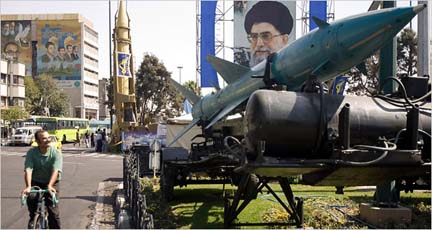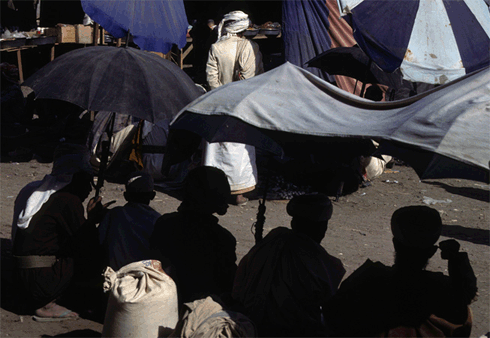
Can’t afford to go to Dubai? Then you can build you own paper version of the Dubai clock tower at home by clicking here.

Can’t afford to go to Dubai? Then you can build you own paper version of the Dubai clock tower at home by clicking here.

By Hooman Majd, Politico, January 17, 2012
Top five, 10 or 100 lists are standard at the end of the year. Though the Iranian year doesn’t end for roughly two months, given the escalating tensions between Washington and Tehran, with threats and counter threats over the Strait of Hormuz — to say nothing of most GOP presidential candidates’ views on what to do about Iran — it might be useful to compile one on the growing Iran crisis, early 2012 here and late 1390 there:
1) More severe sanctions will eventually cause the regime to blink.
Um, no. Thirty-plus years of sanctions have had no effect on Tehran. None. The regime can’t blink — even if it wanted to. Not after it has spent energy, money and every tool it has convincing its people that the nuclear program is a matter of national pride, that the West wants to prevent Iranians from enjoying the fruits of technological advancement and that their suffering under the sanctions is for the country’s greater good.
The regime’s credibility has already suffered because of the opposition protests in 2009 and 2010. So what would it have left if it caved to foreign demands that even the opposition describes as unreasonable?
2) Increasing sanctions will cause the Iranian people to hate the regime even more, leading to an uprising against the ayatollahs.
No. The Iranian people may blame their government for economic mismanagement, as well as human-rights abuses — but most won’t blame it for U.S. actions. Similarly, Iranians may blame President Mahmoud Ahmadinejad for exacerbating domestic problems or creating problems with the West because of his rhetoric. But they don’t blame him for, say, sanctions that prevent Tehran from buying parts for its aging airplanes, which fall out of the sky with alarming frequency.
Think about it: When a nation is attacked, or under severe external pressure, it usually blames the external enemies, not its own leaders. If you factor in the assassinations of scientists on the streets of Tehran and mysterious factory explosions, sanctions and threats may make life miserable for Iranians but are unlikely to cause them to overthrow their rulers. Continue reading Top Five U.S. misconceptions on Iran

A second revised edition of a text attributed to Muhammad ibn ‘Isa al-Tirmidhi (d. 279/892) and called Bayan al-Farq bayn al-Sadr wal-Qalb wal-Fu’ad wal-Lubb, edited with a brief introduction by Yousef Meri is now available from the Royal Islamic Strategic Studies Centre in Amman, Jordan (ISBN: 978-9957-8533-5-8). A pdf may be downloaded from the RISSC website by clicking here.

Sa’da suq, May 1978; Photo by Daniel Martin Varisco